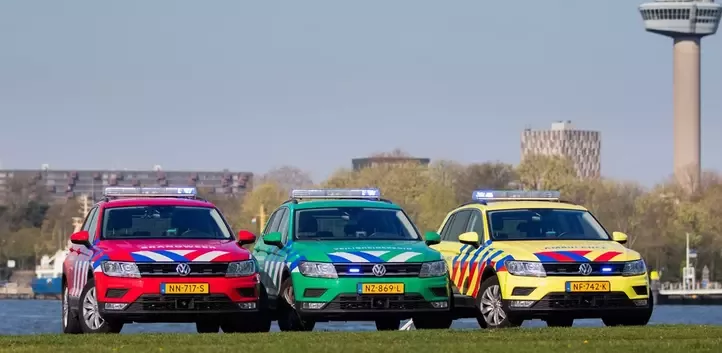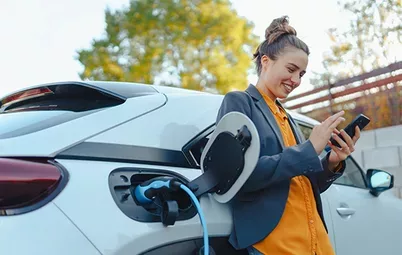EV transition in the Rotterdam-Rijnmond Safety Region: Overcoming resistance

The transition to electric mobility is challenging for organisations where vehicles need to be on standby 24/7, such as the Rotterdam-Rijnmond Safety Region (VRR). Jeannette Kruijthof, Programme Manager for Sustainability at VRR, faces the challenge of making the switch to electric vehicles a reality. However, her efforts are meeting some resistance, especially among vehicles essential for emergency response.
180 new service and emergency vehicles
The lease contract for 180 service and emergency vehicles for the Rotterdam-Rijnmond Safety Region was a complicated process. VRR has a crucial, social role and was therefore looking for a leasing partnership rather than a provider. Eric Westdorp, Manager Business Development at Fleet Support, was involved in this process: "We have seen for some time that customers want true partnerships with their leasing company rather than purely supplying vehicles. Not everyone can do that. At VRR, such a close partnership is perhaps even more important. The leasing company really needs to join the path towards sustainable, electric mobility with their special fleet".
Taking time for transition to electrification
In an organisation like VRR, a transition period is crucial. The transition to electrification is an important step towards a sustainable future, but in the meantime, it is important that Safety Region operations can continue. Although the contract has just been finalised, the first leased car under this new contract is expected by the end of 2024. Getting internal approval in particular proved to be a lengthy process.
A flexible leasing company
The complexity of the organisation, with more than 2,200 employees, made it impossible to involve everyone directly. Fleet Support played a crucial role by, among other things, engaging with end users.
The Safety Region has a unique driving pattern, with vehicles travelling relatively few kilometres annually and mainly driving regionally. "But we have developed scenarios and business cases for electrification for all these vehicles and their specific tasks and the processes around them. Not only for now, but also for future scenarios when very different vehicles might be on the market again. That is why we wanted a leasing company that is flexible about this", says Kruijthof.
Investigation into feasibility
Getting internal approval within the Safety Region proved challenging. This highlighted the importance of support. Fleet Support conducted several studies, including talking to end users to understand the feasibility of electric driving. Change needs to be handled carefully, especially in organisations with a vital role in society.
Resistance came mainly from practical questions: "Will the vehicles be sufficiently charged when the pager goes off? Can the car be used throughout the entire shift without battery problems?". Charging and availability of charging points were legitimate concerns that Kruijthof acknowledges.
Flexibility goes beyond vehicles
In addition to a commitment to EVs suitable for operations within the Safety Region, a critical review of the leasing policy was carried out with Fleet Support. Long contracts with multiple leasing companies got in the way of sustainability. Now, in consultation with Fleet Support after a couple of years, we are looking at where improvements can be made in the leasing policy.
Are you interested in how Fleet Support can help your company switch to electric driving? Do not hesitate to contact us for more information.
Read the full article here, including an interview with Eric Westdorp.



